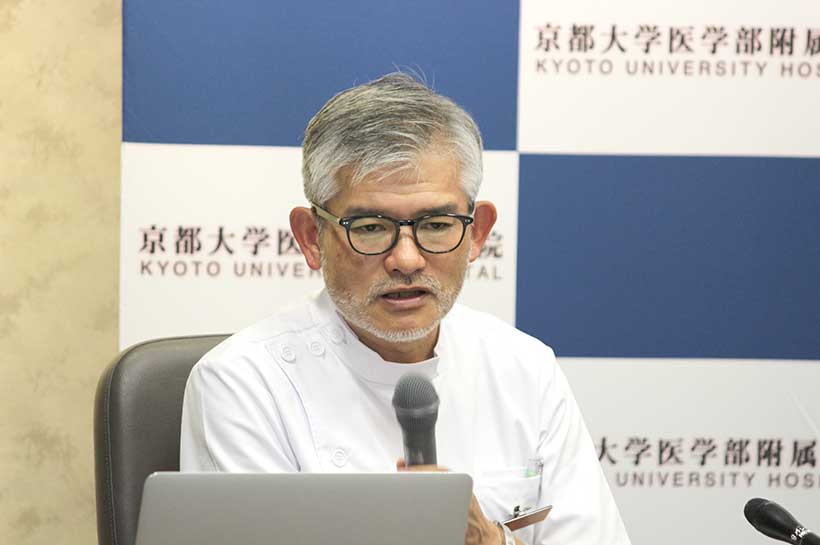On 1 August, Professor Junya Toguchida of the Kyoto University Center for iPS Cell Research and Application (CiRA) and colleagues began the world's first clinical trial of a drug candidate identified using induced pluripotent stem cells (iPS cells). Targeting a rare intractable disease called fibrodysplasia ossificans progressiva (FOP), the trial is taking place at Kyoto University Hospital as part of an Invited Research Project led by Professor Toguchida.
Human iPS cells are currently being studied for two major categories of applications: cell transplantation and regeneration, and disease modeling for pathological investigations and drug screening. iPS cell-based drug screening is being explored for numerous genetic conditions, taking advantage of the fact that the source cells can be derived directly from the patient.
FOP is an extremely rare genetic disorder with an incidence rate of one in two million, and an estimated 80 cases in Japan. In patients with the condition, bones form in unusual places, such as the back skeletal muscles and tendons, beginning in early childhood. This symptom, known as ectopic ossification, gradually spreads to the limbs over time to eventually cause severe impairment of motor function.
The cause was identified in 2006 as an amino acid-substitution mutation in the Activin A Receptor Type I (ACVR1), which is a receptor for bone morphogenic protein (BMP). However, the exact process by which mutated ACVR1 triggers ossification remained unknown, hindering the search for effective treatment.
Professor Toguchida and his team set out to elucidate this process by studying in-vitro models of FOP using patient-derived iPS cells. This project, a collaboration with Sumitomo Dainippon Pharma Co Ltd, revealed Activin A itself as the initial trigger.
The researchers then analyzed the process of Activin A-induced ossification, and identified the mechanistic target of rapamycin (mTOR) as playing a key role. Subsequent tests of mTOR inhibitors found that Sirolimus (or rapamycin) -- already in use for the treatment of another condition -- could actually stop ectopic ossification.
Based on this finding, the team designed an investigator-initiated clinical trial for evaluating Sirolimus' efficacy against FOP. The researchers then developed a plan for a multi-facility investigator-led clinical trial involving two partners -- Nobelpharma Co, Ltd, the compound's supplier, and KU Hospital's Institute for Advancement of Clinical and Translational Science (iACT) -- following advice from the Pharmaceuticals and Medical Devices Agency (PMDA). The finalized plan was submitted to and approved by PMDA, after being reviewed by KU Hospital's institutional review board.

Professor Toguchida responding to reporters





